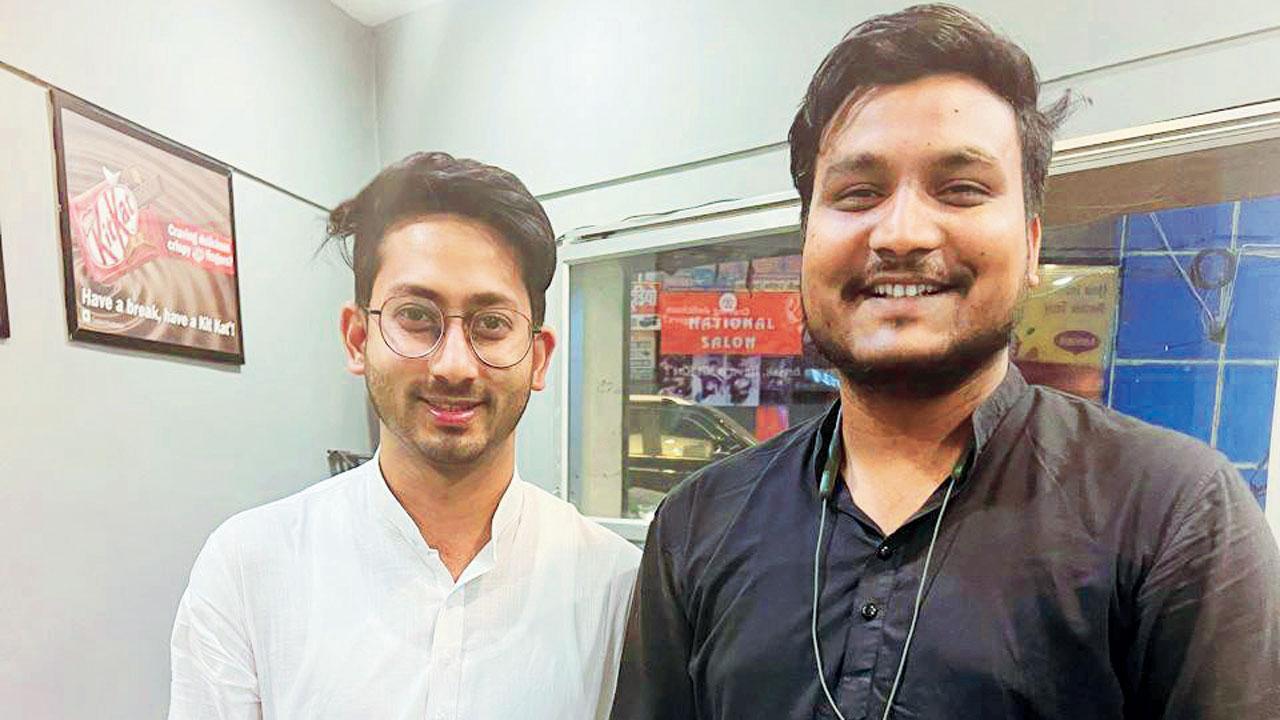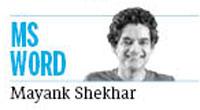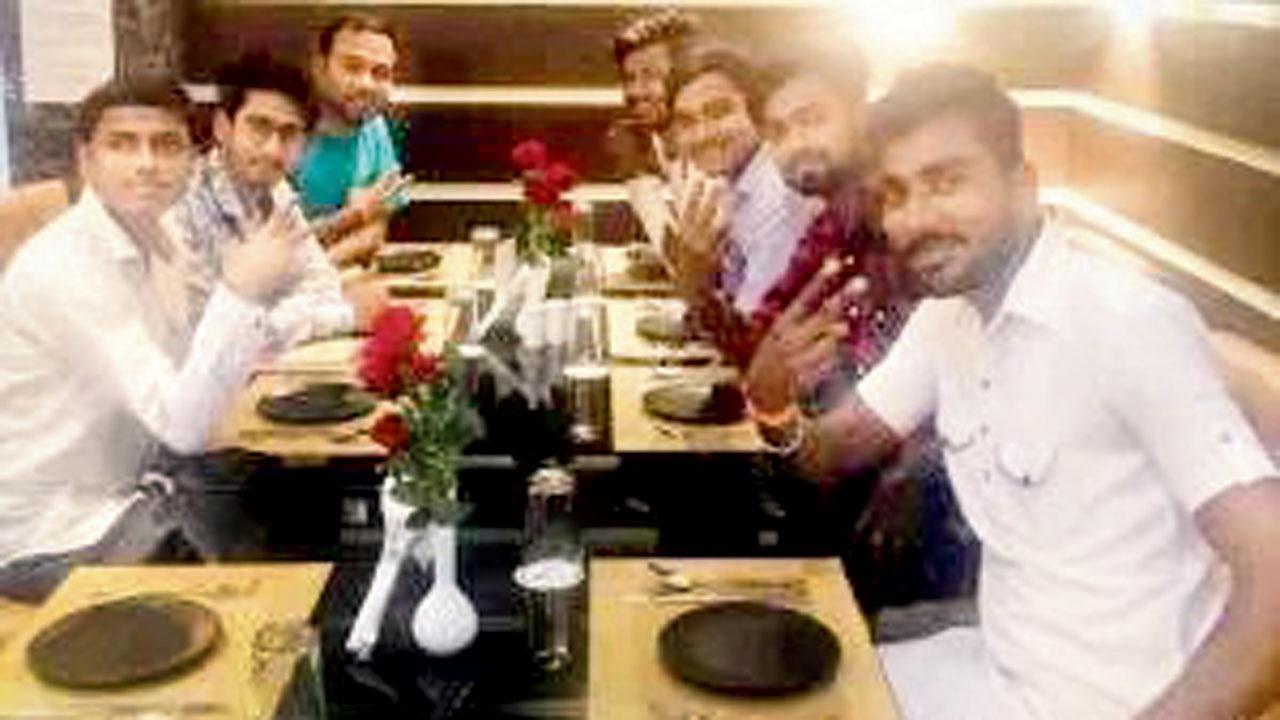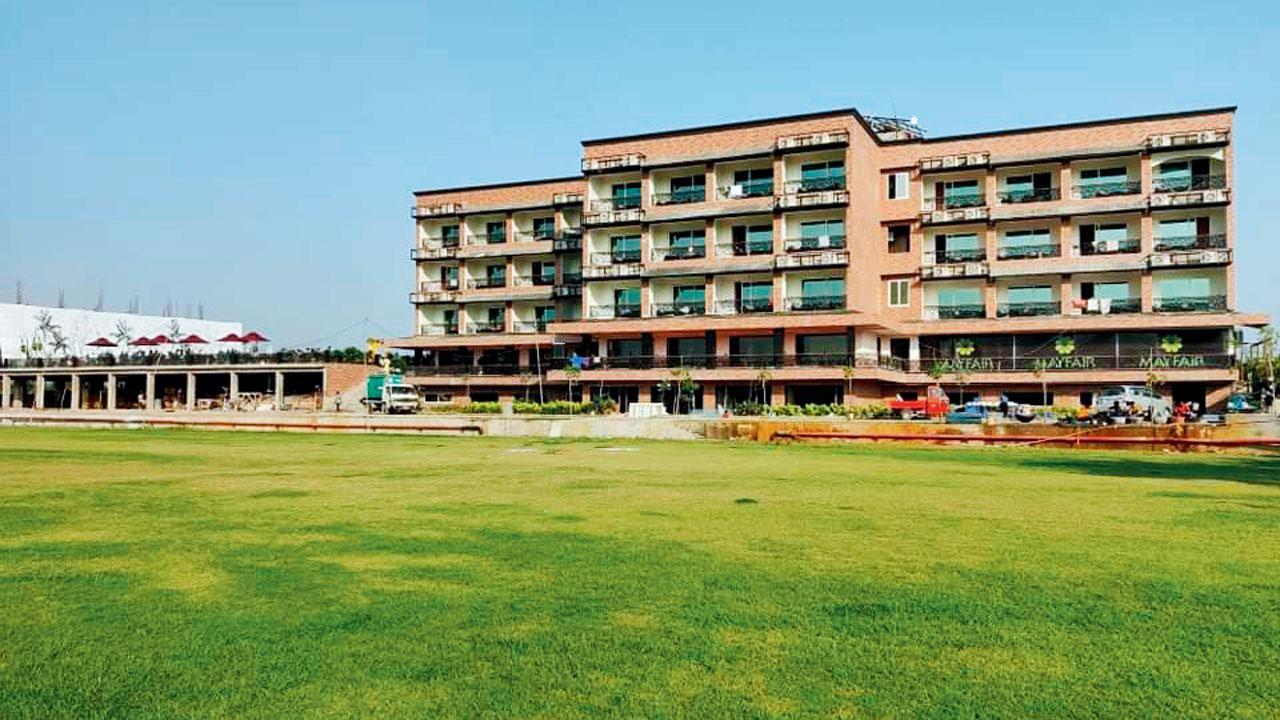Both restricted and reversed migration shows, even with India’s most backward state, Bihar, small town is the future of the city

Imtiaz Kamar and Mohd Tufail, both 25, at the Nescafé coffee shop by Roopbani Cinema, in Purnea, Bihar
 The thing with new eateries that kill it with their Insta game—overspending on great décor—is, once people have visited those places, clicked the desired pictures/videos, posted them online, wreaking fomo on their friends, they seldom return!
The thing with new eateries that kill it with their Insta game—overspending on great décor—is, once people have visited those places, clicked the desired pictures/videos, posted them online, wreaking fomo on their friends, they seldom return!
ADVERTISEMENT
That’s how places shut down so quickly. This is a fine insight on the F&B industry I get from Mohamed Tufail, 25, and Imtiaz Kamar, 25. Perhaps as true for Bombay, as Purnea, Bihar, where Tufail runs a Chinese restaurant, Chopsticks; Kamar has a café and a bakery, Lassi Ghar and Chashni.
We meet at the lovely Nescafe coffeeshop, by Roopbani cinema, in Purnea. It’s been five years after Kamar, Tufail and I have reconnected. I’m on the road, reporting on the 2024 general elections.
Similarly, the first time we met was when I had, likewise, treated them to coffee, during the general elections, in 2019—hosting a group discussion with several such, randomly picked, first-time voters from Purnea.

The youngsters in 2019 and the Mayfair Hotel
To prove that there was indeed a perceivable attitudinal shift among young middleclass Biharis—earlier, either associated with taking entrance tests, seeking government jobs, or looking to move to bigger/metropolitan cities.
Tufail then had wished for a corporate career. At 20, Kamar already owned an e-commerce site, retailing cellphone accessories sourced from China, that he says, “went the Snapdeal way; it’s impossible for anyone to compete with Amazon.”
Thereafter, he started a mithai shop that ran into a peculiar kinda issue. Most of his Hindu clientele would buy mithai to present as prasad (offering) to Gods. They weren’t particularly comfortable with picking it up from a Muslim’s store. Kamar tells me this, adding right away that he means “no disrespect.” Fair.
So, five years later, which is a fifth of their lifetime, since they were 20 then, what’s changed about their professional life, now? Both Kamar and Tufail employ five to 10 people from Purnea in their respective businesses. Kamar hopes to expand his popular bakery into a franchise.
They’re not the only ones. Right before stepping into the coffeeshop, I got presented a fantastic T-shirt with the poster of my favourite film, Satya, hand-painted by the young local artist, Shanu Ray. He refused to let me pay, so I’ve placed an order for another favourite, The Namesake, for a painted tee.
Local entrepreneur Manish Ranjan sells Ray’s works on demand, online, under the label, House of Maithili. Ranjan used to be a fashion consultant with several TV channels, production houses, such as MTV, UTV, etc, back in Bombay. He moved to his hometown during COVID-19, and stayed on.

Which is spread over 35 acres, in the district
Which is a pretty common phenomenon, I notice. It doesn’t matter what you return for. Bright Kunal Kumar, with “vishesh lagaav for Bombay”, used to assist in movie productions in Versova, before pandemic. Politics is his love-interest. He assists local neta, Pappu Yadav in Purnea, as we speak.
And that’s the most lucrative, small-town profession still. Sway of the state has tragically deepened over years. Absolute power continues to reside with politicians, bureaucrats. The local DM or SP, especially in Bihar, like the state CM, and the PM, is a temporary messiah. Good ones get remembered as Gods forever.
To get anything done, you ought to know someone, who knows someone. A barter is established. Politeness is perceived as weakness. Assertiveness gets admired. You could feel lost otherwise.
That’s why elections feel like a make-or-break moment, for those with much to lose, or gain. You’d rather have access to power in Purnea, than simply be rich. The latter works fine in a big city.
How many luxurious experiences can too much money buy you, in a small town, anyway? I pay R200, for a Chinese lunch at the nearby Kishanganj’s poshest restaurant, Hotel Daftari Palace; Rs 250, for a tiny cup of coffee at Bagdogra Airport; and R1,200 for a pint of beer in Kolkata’s
Someplace Else, pretty much over the same day.
A town’s low purchasing power bears immense benefits. Folks flailing their asses over long commutes, small homes, with disposable incomes nearing zero, despite how much they make, will figure this out, at some point.
But that’s also gonna change as the demographic does. Purnea is, I guess, a Tier III town. The Mayfair Hotel I stay over at, still reasonably priced, with a swimming pool, spa, the works, is spread over an eyepopping, 35-acre all-green campus. Nitesh Singh, its owner, also has a huge mall coming up elsewhere. He used to work in the real-estate in Kerala.
I didn’t ask him who his customers are—there’s nothing principally touristy about Purnea, best known for litterateur Phanishwar Nath Renu, who was anyway from the neighbouring Araria. What’s he investing so heavily on, then? The future, what else! The small town is the future of the city.
I’m also drawn to Purnea, because one of my closest friends since school, Vishek Chauhan, moved there in 2009, after a successful corporate career, to run his ancestral Roopbani cinema.
He refurbished the decrepit theatre, installing AC, plusher seats, and threw its doors open, with the latest Salman Khan release (Wanted). There was a line all the way down to a hundred metres for Salman then. As now. Okay. Some things really don’t change.
Mayank Shekhar attempts to make sense of mass culture. He tweets @mayankw14
Send your feedback to [email protected]
The views expressed in this column are the individual’s and don’t represent those of the paper.
 Subscribe today by clicking the link and stay updated with the latest news!" Click here!
Subscribe today by clicking the link and stay updated with the latest news!" Click here!







